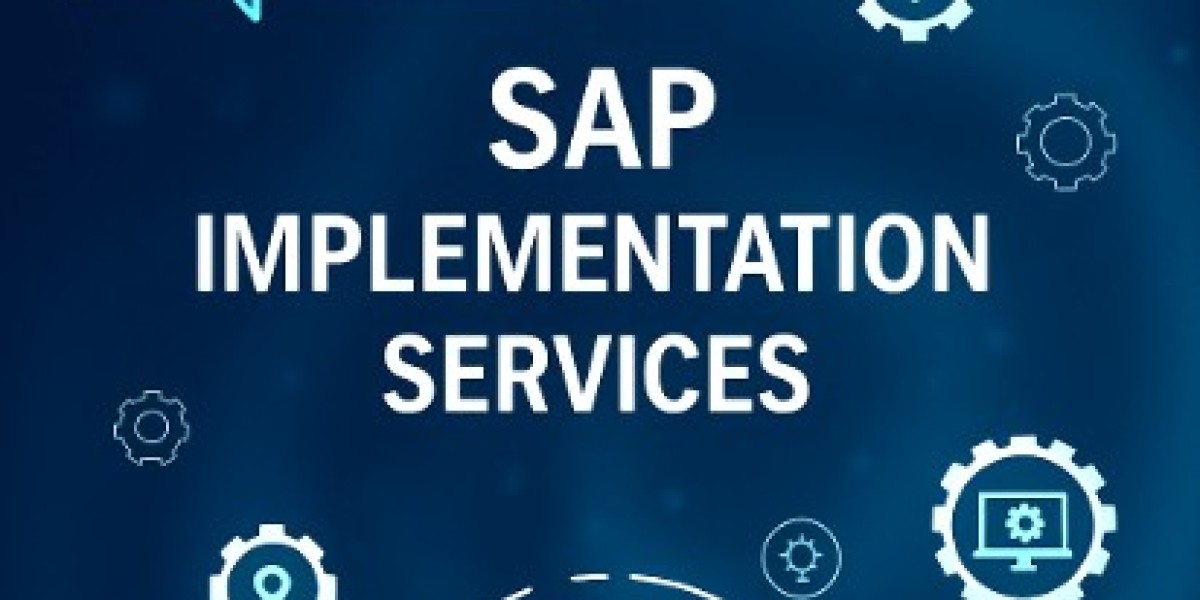In today's rapidly evolving business landscape, enterprise systems have become the backbone of organizational operations. These comprehensive software solutions integrate various business processes, from finance and human resources to supply chain management and customer relations. The question isn't whether these systems are important, but rather how profoundly they shape the success trajectory of modern businesses. Understanding this impact is crucial for professionals considering specialized training, such as an SAP Course in Mumbai, to enhance their career prospects in the enterprise technology sector.
The Foundation of Digital Transformation
Enterprise systems serve as the digital foundation upon which modern businesses build their competitive advantage. These integrated platforms eliminate data silos, streamline workflows, and provide real-time visibility into business operations. Companies utilizing robust enterprise resource planning (ERP) systems report significant improvements in operational efficiency, with many experiencing up to 20% reduction in operational costs within the first year of implementation. The ability to access comprehensive business intelligence through these systems enables leaders to make data-driven decisions that directly impact profitability and market positioning. Professionals equipped with expertise from an SAP Course in Mumbai often become instrumental in facilitating these transformative implementations.
Enhanced Decision-Making Through Data Integration
The power of enterprise systems lies in their ability to consolidate disparate data sources into coherent, actionable insights. When marketing, sales, finance, and operations data flow seamlessly through integrated platforms, organizations gain unprecedented visibility into their performance metrics. This holistic view enables businesses to identify trends, predict market shifts, and respond proactively to customer demands. Companies with well-implemented enterprise systems demonstrate 25% faster decision-making processes compared to those relying on disconnected systems. The analytical capabilities built into modern platforms transform raw data into strategic intelligence, giving businesses a significant competitive edge in their respective markets. Completing an SAP Course in Mumbai provides professionals with the skills to leverage these analytical tools effectively.
Operational Efficiency and Cost Optimization
Enterprise systems fundamentally reshape how organizations manage their resources and execute their core processes. By automating routine tasks, standardizing procedures, and eliminating redundant activities, these systems create substantial efficiency gains across all business functions. Manufacturing companies, for instance, often experience 15-30% improvements in production planning accuracy when utilizing advanced enterprise planning modules. The integration of supply chain, inventory management, and procurement processes through unified platforms reduces waste, minimizes errors, and optimizes resource allocation. These efficiency improvements translate directly into cost savings and enhanced profitability, making enterprise systems essential for sustainable business growth. Skills gained through an SAP Course in Mumbai enable professionals to optimize these operational improvements.
Customer Experience and Relationship Management
Modern enterprise systems excel at centralizing customer information and interaction history, enabling businesses to deliver personalized experiences at scale. When sales, marketing, and customer service teams access unified customer profiles, they can provide consistent, informed service across all touchpoints. This integration leads to improved customer satisfaction rates, with studies showing up to 40% increase in customer retention for businesses utilizing comprehensive customer relationship management modules within their enterprise systems. The ability to track customer preferences, purchase history, and service interactions empowers organizations to anticipate needs and exceed expectations consistently. Professionals trained through an SAP Course in Mumbai often specialize in configuring these customer-centric modules.
Scalability and Growth Facilitation
Enterprise systems provide the technological infrastructure necessary for sustainable business growth. Unlike disparate software solutions that become unwieldy as organizations expand, integrated enterprise platforms scale seamlessly with business requirements. Companies can add new locations, product lines, or business units without completely overhauling their technological foundation. This scalability extends to user capacity, transaction volume, and data storage requirements, ensuring that technology supports rather than constrains business growth. Organizations with robust enterprise systems can expand into new markets 50% faster than competitors relying on legacy systems, as they possess the operational framework necessary to support increased complexity. Knowledge from an SAP Course in Mumbai proves valuable for managing these scaling challenges.
Compliance and Risk Management
In an increasingly regulated business environment, enterprise systems provide essential compliance and risk management capabilities. These platforms maintain comprehensive audit trails, enforce approval workflows, and ensure adherence to industry-specific regulations. Financial services companies, healthcare organizations, and manufacturing businesses rely heavily on enterprise systems to demonstrate compliance with stringent regulatory requirements. The built-in controls and reporting capabilities reduce the risk of non-compliance penalties while streamlining audit processes. Real-time monitoring features enable organizations to identify and address potential risks before they escalate into significant problems. Professionals with training from an SAP Course in Mumbai understand how to configure these critical compliance features.
Innovation and Competitive Advantage
Enterprise systems serve as platforms for innovation, enabling businesses to experiment with new processes, products, and services. The data analytics capabilities built into modern platforms provide insights that drive innovation initiatives, while the flexible architecture supports rapid prototyping and deployment of new business models. Companies utilizing advanced enterprise systems report 35% faster time-to-market for new products and services compared to competitors using fragmented systems. The integration capabilities allow organizations to incorporate emerging technologies such as artificial intelligence, machine learning, and Internet of Things devices into their existing workflows. This technological agility becomes a significant competitive differentiator in rapidly changing markets. Advanced skills from an SAP Course in Mumbai help professionals lead these innovation initiatives.
Financial Performance and ROI
The financial impact of well-implemented enterprise systems extends far beyond cost savings. Organizations typically experience improved cash flow management, more accurate financial forecasting, and enhanced profitability analysis. The integrated nature of these systems provides real-time financial visibility, enabling faster month-end closing processes and more accurate budget planning. Studies indicate that businesses with comprehensive enterprise systems achieve 15-20% improvements in working capital efficiency and demonstrate more consistent quarterly performance. The return on investment for enterprise system implementations typically ranges from 200-400% within three to five years, making them among the most valuable technology investments organizations can make. Expertise gained through an SAP Course in Mumbai contributes to maximizing these financial returns.
Workforce Productivity and Collaboration
Enterprise systems significantly enhance workforce productivity by providing employees with integrated tools and information access. When team members can access relevant data, collaborate on projects, and automate routine tasks through unified platforms, overall productivity increases substantially. Remote and hybrid work arrangements benefit particularly from enterprise systems, as employees can access complete business information regardless of their location. The standardization of processes across departments reduces training time for new employees and ensures consistent service delivery. Organizations report up to 30% improvements in employee productivity following successful enterprise system implementations. Professional development through an SAP Course in Mumbai prepares individuals to maximize these productivity benefits through effective system utilization and optimization.








